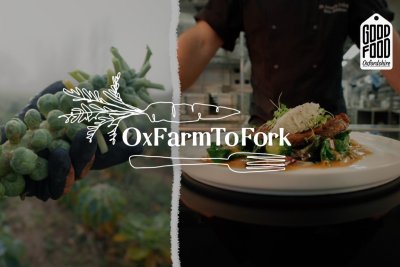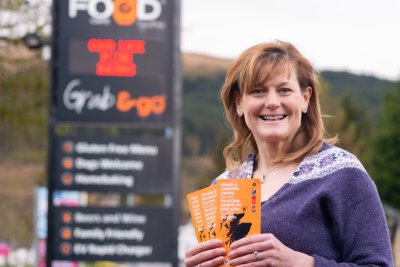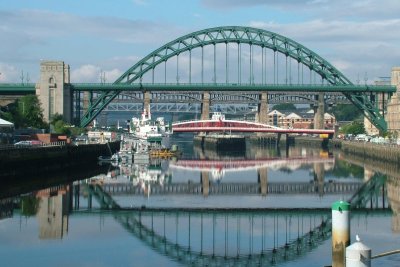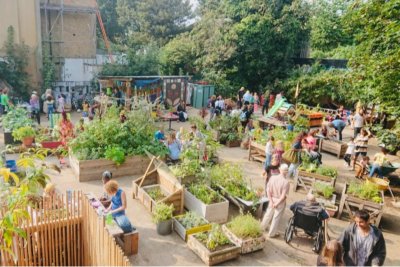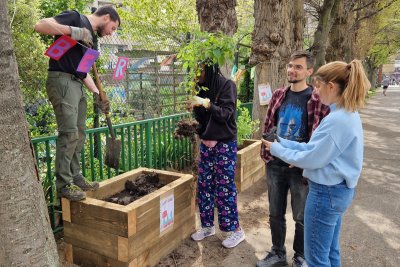Health campaigners call for next London Mayor to improve London’s food
Campaigners are challenging all of the candidates for the 2016 London Mayoral elections to say what they would do to make London’s food systems healthier and better for the environment.
Their latest activity has been to call on Labour’s candidate, Sadiq Khan, to put food issues at the heart of his Mayoral election manifesto, building on a decade of food leadership under the current and previous Mayors, Boris Johnson and Ken Livingstone.
Tackling food issues at city level could help to reduce childhood obesity, the disturbing rise of diabetes, whilst also making sure that London does its bit to support British farmers and entrepreneurial food businesses, especially those that use ethical and sustainable production methods and ingredients.
The capital’s food network London Food Link, run by the food and farming charity Sustain, is encouraging London’s citizens, local health workers and food businesses to make sure that their opinions are heard by taking part in the consultation, by 27 November 2015.
This is part of London Food Links campaign to ensure all political parties put food at the heart of their Mayoral Manifestos. Keep up to date on our campaigns and activities by joining London Food Link.
Our full consultation response is below.
‘Safer, Healthier Communities’
Q5: What are the key public health challenges for London and how should we address them?
We commend the reference to tackling childhood obesity and ill health, but would like to see this is given a significantly high priority due to the scale of the problem and the potential for the next London Mayor to address it. In addition we would like to see how you might also address the issue in adults, who are also more overweight or obese compared to other areas of England and other global cities. This is an issue of health inequality most likely to affect those living in deprived areas with a poor diet linked to life-threatening complications later in life.
This problem needs to be addressed as a matter of urgency via cross-sectoral interventions challenging retailers, caterers, manufacturers, advertisers and planners to ensure that good food is more affordable, more accessible and better marketed than junk food. The new Mayor should have an ambitious target to reduce diet related disease and deaths and halve the cost of diet related disease including initiatives such as limiting advertising on TFL property, ensuring every public park has access to drinking water, and making London a ‘Sugar Smart City’.
Q7: What other key challenges and priorities exist in this area?
Food poverty: This problem is not mentioned but is a significant and concerning issue. We feel it is unacceptable that in a global wealthy city like London, many people are unable to access or afford healthy food. The level of poverty and hunger among London’s children is worryingly large and growing, and will affect health, school attainment and life chances later in life. The future London Mayor should make this an absolute priority and adopt a zero-tolerance approach to food poverty in the capital, especially among children, eliminate holiday hunger, which affects almost 600,000 London children, and save Meals on Wheels.
‘A cleaner, greener London’
Q3. How can we create more green space and greater access to nature for all Londoners?
London has a fantastic history of green spaces, which have greatly contributed to public health. London Food Link has also supported the creation of over 2000 food growing gardens across the Capital with the majority located in the most deprived areas of London. We believe that these projects should be celebrated and supported to provide healthy living opportunities for local residents including those most in need, or suffering from mental or physical health issues.
We think the new Mayor should also protect land for food growing/allotments and increase land in new developments for food growing, and to ensure that this is contained within the next London Plan.
Q5. How can we best support London’s growing low carbon sector?
The paper sets the ambition to grow London’s low carbon sector and it would be great to see a link to the potential of the food sector. The next London Mayor should take the leadership in addressing and lowering greenhouse gas (GHG) emissions from food and tackle household food waste. The livestock sector contributes a third of the UK’s GHG emissions but received relatively little attention compared to the transport or the energy sectors. Even a small reduction in meat consumption in London’s public food procurement contracts, starting with those which are directly under Mayoral control or influence, would go a good way to lowering this.
Q6. What other key challenges and priorities exist in this area?
One area that is not addressed in the paper is waste and composting. Currently 10% of emissions produced by developed countries come from food that is never eaten. The first approach should be to reduce waste, followed by feeding people in need and then livestock. We believe every Londoner should have the opportunity to divert non-edible food for composting whether at home or on the go.
‘Business, growth and jobs’
Q1: What are the key opportunities for growth in London and how can the Mayor support business to make the most of them?
The GLA already estimates that 1 in 10 jobs in London are in the food and drink sector. Yet wages and job security in this sector are some of the lowest in business, and too much of the food sold is unhealthy or environmentally damaging. There is a well-documented lack of skilled labour to meet the demands of the food sector.
There is a clear potential for growth, and this should focus on growth in businesses that make both residents healthier and London greener. Exciting and vibrant food start-ups are making London a world leader in food. There is a clear opportunity for the Mayor to show leadership through creating a plan and programme of investment for good food jobs promoting food SMEs, training for job entrants in the food sector, widespread adoption of the London Living Wage and an increase in businesses adopting ethical food and employment standards.
Q6. What other key challenges and priorities exist in this area?
London Food Link supports the idea to create a ‘fairness team’ at City Hall to oversee public procurement and a new London business compact, recognising great employers. We think food plays a vital role and should be an element in these initiatives as a way of reaching multiple targets: growth and rural economies (by supporting better food and local producers), better health (freshly prepared, seasonal and better quality food), and lower environmental impacts/better animal welfare (targets for spend on organic, less and better meat, less waste). The Mayor should have targets to increase local, seasonal and environmentally friendly food in public procurement and recognise companies serving better food to their employees or customers.
General
The GLA have already made a commitment to healthy and sustainable food, for example by adopting the London 2012 Food Vision and through the recent sign up to the Milan Food Pact. We would like to see this work further developed by the new Mayor, to show leadership on food issues across London. Even in areas not under the Mayor’s direct control, it is important that they show wider leadership, for example advocating for more controls on sugar at the national level and setting the example to other public and private sector bodies.
For more information visit www.sustainweb.org or email sarah@sustainweb.org
Published Tuesday 24 November 2015
London Food Link: London Food Link brings together community food enterprises and projects that are working to make good food accessible to everyone in London to help create a healthy, sustainable and ethical food system for all.

